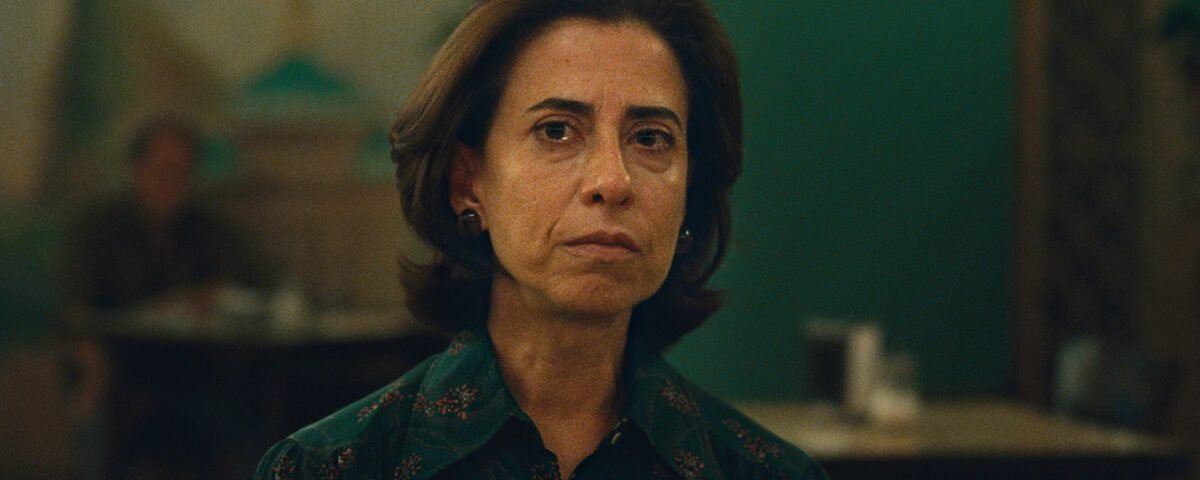


‘Wolfs’ Review: Brad Pitt and George Clooney Reunite for a Cunning Caper That Never Takes Itself Too Seriously — Sometimes to a Fault
September 11, 2024


‘Saturday Night’ Review: Jason Reitman Chronicles the Lead-Up to the First ‘SNL’ Show in Alternately Fresh and Frustrating Fashion
September 12, 2024Premiering at Venice, the film stars Fernanda Torres as a mother of five children who reinvents herself as a lawyer and activist after suffering a devastating loss at the height of Brazil’s military dictatorship.
I’m Still Here
Disappeared but not silenced.
Walter Salles’ 1998 international breakthrough, Central Station, earned an Oscar nomination for the magnificent Fernanda Montenegro. Now in her 90s, the actress turns up toward the end of the director’s first feature in his native Brazil in 16 years, the shattering I’m Still Here (Ainda Estou Aqui), in a role that requires her to speak only through her expressive eyes. What makes the connection even more poignant is that she appears as the elderly, infirm version of the protagonist — a woman of quiet strength and resistance played by Montenegro’s daughter, Fernanda Torres, with extraordinary grace and dignity in the face of emotional suffering.
It’s not often, however, that the spirit of protest against the horrors of junta rule is viewed through such an intimate lens as I’m Still Here. That aspect is deepened by evidence throughout the film of Salles’ personal investment in the true story of the Paiva family after patriarch Rubens (Selton Mello), a former congressman, was taken from his Rio de Janeiro house in 1971, ostensibly to give a deposition, and never seen or heard from again.
There are sweet throwaway moments like two of the sisters dancing and singing along to the Serge Gainsbourg-Jane Birkin wispy make-out classic “Je t’aime … moi non plus,” without understanding the words. Just watching how one of the youngest kids, Marcelo (Guilherme Silveira), sweet-talks his way into keeping a stray dog they found on the beach conveys the warmth, spontaneity and affectionate scrappiness of the Paiva household dynamic. The young actors playing the kids are all disarmingly natural and appealing.
The first blunt intrusion into the family’s bubble of closeness and comfort comes when eldest daughter Vera (Valentina Herszage) is out with a group of friends and their car is pulled over at a tunnel roadblock. It’s a disturbing scene in which we see teenagers — just minutes earlier cruising along, sharing a joint and laughing — ordered at gunpoint to stand against a wall while military officers question them, searching their faces for any resemblance to the “terrorist killers” they’re looking to apprehend.
An occasional hushed phone conversation or private exchange with a friend suggests Rubens’ involvement in something that needs to be kept quiet. But the script by Murilo Hauser and Heitor Lorega, based on the book by Marcelo Rubens Paiva, saves those details until long after Rubens is taken into custody. That puts us in the same position as his wife and children, wondering what their father could possibly have done to place him in the regime’s crosshairs.
The situation escalates when Eunice is hauled off for interrogation. With Vera away in London with family friends, the next oldest, 15-year-old Eliana (Luiza Kozovski), is forced to accompany her mother, with bags put over their heads to keep them from knowing where they are being taken.
The interrogation scenes, set in a grim building with confinement cells, are harrowing. Eunice is sequestered for 12 days. Denied contact with the family lawyer, she’s kept completely in the dark about what’s happening to her daughter and is unable to learn where her husband is being held. She’s coerced over and over to identify people in photo files as possible insurgents, but aside from her husband, she recognizes only one woman who teaches at her daughter’s school. Her isolation and fear are made worse by the constant screams of people being tortured coming through the walls.
There are many moments of raw tenderness after Eunice is released — notably when one of her daughters watches from the bathroom doorway, her face a mix of sorrow and terror, as her mother showers away 12 days of grime.





